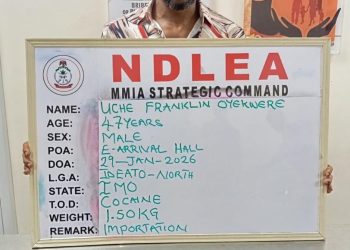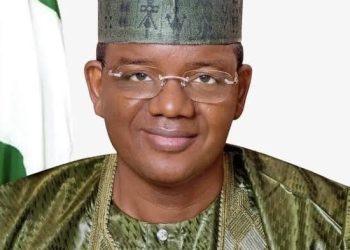By Nkechi Eze
In a renewed drive to build fiscal consciousness among Nigeria’s youth and cultivate a new generation of transparent, accountable leaders, the Fiscal Responsibility Commission (FRC) has embarked on an extensive sensitization campaign across National Youth Service Corps (NYSC) Orientation Camps in six states and the Federal Capital Territory (FCT). The initiative is part of the Federal Government’s broader fiscal reform agenda and aims to equip Corps Members with knowledge of public finance management, transparency, and fiscal responsibility.
In an official signed statement, the spokesperson for the Commission, Bede Ogueri Anyanwu, disclosed that the campaign was led by the Executive Chairman of the Commission, Victor Muruako, Esq., who emphasized that the outreach is designed to educate Corps Members on the fundamentals of fiscal discipline and inspire them to become advocates for good governance in their various communities and careers.
During his address, Muruako reflected on his own NYSC experience and the absence of such strategic knowledge at the time. “Standing here reminds me of my own NYSC days. I wish I had access to this kind of critical information back then, it would have shaped my path much earlier,” he said. He explained that fiscal responsibility is the foundation of good governance and is defined by transparency, accountability, and prudence in the management of public funds. According to him, Nigeria has made a significant transition from a system driven by arbitrary and discretionary financial decisions to a rule-based fiscal governance model anchored in law.
A central highlight of the sensitization programme was the detailed exposition of the Fiscal Responsibility Act (FRA) of 2007, which gave birth to the Fiscal Responsibility Commission. Muruako explained that the Act introduced a number of key provisions that now form the pillars of Nigeria’s public finance system. These include the Medium-Term Expenditure Framework (MTEF), strict rules for borrowing and debt management, clear guidelines for the use of excess revenues, and institutionalized oversight mechanisms for budget planning, execution, and evaluation. He described the FRA as the bedrock of Nigeria’s modern fiscal architecture and the most significant law driving national economic stability.
In addition to the FRA, the Chairman highlighted complementary reform frameworks that have deepened fiscal discipline across public institutions. These include the Treasury Single Account (TSA), the Bank Verification Number (BVN), the Public Procurement Act, and the Infrastructure Concession Regulatory Commission Act. He stressed that these tools are not arbitrary policies but institutional safeguards that ensure public funds are managed with transparency and accountability, in line with established legal frameworks.
Muruako went further to showcase the Commission’s progress since its inception. He stated that in 2018, remittances from Government-Owned Enterprises (GOEs) stood at ₦200 billion, but by 2024, that figure had surged to over ₦2 trillion, a testament to the FRC’s strengthened enforcement mechanisms and growing fiscal compliance among public institutions. He also noted that the Commission conducts regular project verification exercises across the country to ensure that public spending translates into real value for Nigerian citizens.
Addressing the Corps Members directly, the FRC Chairman urged them to see themselves not merely as graduates undergoing national service, but as members of Nigeria’s emerging leadership class. He encouraged them to become ambassadors of fiscal discipline, urging them to familiarize themselves with the Fiscal Responsibility Act of 2007, stay informed about national economic and fiscal developments, and actively promote transparency in their communities. He further encouraged Corps Members to organize peer-to-peer discussions and establish Fiscal Responsibility Awareness Clubs at their Places of Primary Assignment (PPAs).
A particularly empowering element of Muruako’s address was his reference to Section 51 of the FRA, which grants every Nigerian citizen the right to approach the courts to enforce any aspect of the Act, without the need to prove personal interest or locus standi. He encouraged Corps Members to consider forming non-governmental organizations and advocacy groups dedicated to promoting transparency, accountability, and good governance, stating, “These reforms are not just policies on paper, they’re opportunities for you to drive change, shape society, and make lasting impact.”
As part of the sensitization programme, delegations from the Commission were deployed to NYSC Orientation Camps across the North Central geopolitical zone. The campaign covered Benue, Kogi, Kaduna, Niger, and Nasarawa States as well as the Federal Capital Territory. At the Benue State Orientation Camp, the sensitization was conducted by Adedayo Akeem Jagun and Otsowo Emiko Henry. In Kogi State, Bello Ibrahim and Uhegbu Mathias Chidi led the outreach. At the Kaduna State Orientation Camp, Austine Ellah and Ubah Mascot Nzubechi engaged the Corps Members. Niger State was covered by Anyanwu Bede O. and Njoku Jude Kelechi. The campaign in Nasarawa State was conducted by Ugoh Chinemerem and Sulaiman Yahaya Jadi. At the FCT Orientation Camp in Abuja, Ado Hassan and Mohammed Abdulahi represented the Commission.
At each camp, the FRC teams sensitized Corps Members on the mission, vision, and operations of the Commission. They distributed educational materials and encouraged the youth to take ownership of their civic responsibilities by contributing to the building of a more accountable Nigeria. The campaign was met with enthusiasm from the Corps Members, many of whom expressed appreciation for the exposure to such relevant governance frameworks early in their careers.
The Fiscal Responsibility Commission reaffirmed its commitment to creating a sustainable culture of fiscal discipline and empowering citizens, particularly the youth, with the knowledge and tools required to contribute meaningfully to national development. The engagement with NYSC members, the Commission noted, represents a strategic investment in the future integrity, leadership, and sustainability of Nigeria’s public finance system.















